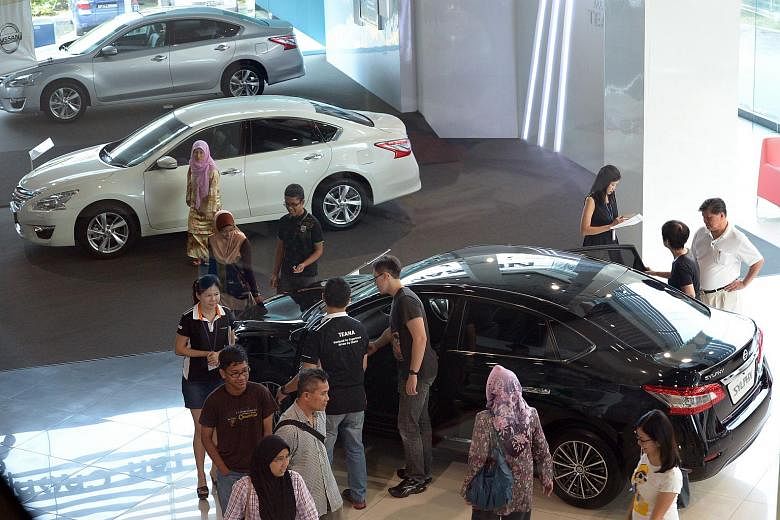Would-be owners of new motor vehicles can expect the current surge in supply of Certificates of Entitlement (COEs) to continue for the next two years.
Transport Minister Lui Tuck Yew has given the assurance that the Government will not intervene and "even out" the supply that is set to soar because of the large number of cars reaching the 10-year mark, the age when cars are typically scrapped or deregistered.
"Let them enjoy the period of growth in the number of COEs coming back into the system first," he said in an interview with The Straits Times yesterday.
"We can continue to monitor what it is like and take our time to think a little bit more about it."
The COE quota for motor vehicles is largely determined by the number of cars scrapped or deregistered in the preceding quarter.
The unusually high supply, however, is set to slide from mid-2018.
This peak-and trough situation is not good, said experts and car dealers, as it causes too much uncertainty in the market.
For instance, the rise in COE supply in the last two quarters this year, compared to the same period last year, has pushed down COE prices for small cars from $66,010 in January to $56,209 at the last bidding early this month.
Similarly, COE prices for luxury cars fell from $75,289 to $60,789.
Mr Lui, however, warned that it was not tenable for the vehicle growth rate to climb up to the pre-vious 3 per cent or even 1.5 per cent a year. The current rate is 0.25 per cent a year.
"Every expansion of the roads, every new expressway that you build is at the expense of something else - greenery, space, noise levels, the environment and so on," he said.
Car ownership remains an aspiration for many Singaporeans, he acknowledged. But a lot had been done to give commuters "real alternatives" to owning a car, he said.
These include: more car sharing sites, with the Housing Board allocating 3,000 carpark spaces across the island for it, and new rules that require cabbies to clock 250km on the road daily, resulting in about 2,000 more taxis plying the roads during peak hours.
Still, more can be done to reduce people's reliance on cars, said Mr Lui. He cited for example a flexible season parking scheme that lets users pay a daily, instead of a monthly, charge.
"We need to also tinker with other possible changes... that will allow them to gradually change their behaviour," he said.
Maria Almenoar

